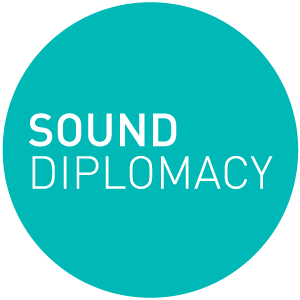Client: UNESCO
Project: Sound Diplomacy, NACZ, and UNESCO Release Study of the Digital Music Sector in Zimbabwe
Year: 2023
Zimbabwe
A report to identify solutions for bolstering the country’s music ecosystem online
Sound Diplomacy is excited to announce the release of a Baseline Study of the Digital Environment in the Music Sector in Zimbabwe, produced in partnership with the UNESCO Regional Office for Southern Africa, the National Arts Council of Zimbabwe (NACZ), and the Government of the Republic of France. Zimbabwe is home to an extremely rich talent pool of contemporary and traditional musicians who regularly garner significant plays on YouTube and other digital streaming platforms, and the music ecosystem is beginning to benefit from NACZ’s ongoing National Music Strategy of Zimbabwe, 2022-2027. There are a number of areas related to the digital music sector in the nation, however, that could be improved so that Zimbabwe’s rich musical offerings can reach the widest possible international audience to the benefit of musicians and the local economy. Monetisation/banking, digital piracy, copyright/IP education, digital infrastructure, and the availability of data all pose pressing challenges that are in need of specific attention.
In order to articulate and identify potential solutions to these challenges, Sound Diplomacy, NACZ, and UNESCO collaborated on a comprehensive four-pronged research approach including:
Stakeholder engagement: Having compiled a database of key stakeholders, partners, and organizations in Zimbabwe, Sound Diplomacy hosted an online stakeholder engagement session in order to gather local expertise and perspective, and seek buy-in on the project from leaders in Zimbabwe’s music ecosystem.
SWOT Analysis: Following the stakeholder session, Sound Diplomacy prepared a detailed overview of identified internal strengths and weaknesses and external opportunities and threats.
Priority Areas: Having met with stakeholders and collated the findings, Sound Diplomacy identified a number of key priority areas with recommendations aimed to stimulate economic, social, and cultural growth through the development of the local music sector’s digital footprint.
Case Studies: For each priority area, Sound Diplomacy gathered key takeaways from a number of successful real-world examples of jurisdictions and organizations that have found solutions to similar challenges facing the Zimbabwean music ecosystem.
Priority Areas and Suggested Recommendations
The above described research process identified the following priority areas:
Governance and Leadership Music is not considered an essential component of the broader economy, and artists face financial constraints. Governmental restructuring is needed in order to align with the music and culture sectors, and combat pervasive issues like digital piracy. This priority area yielded a number of suggested recommendations including:
Appointing a National Music Officer
Creating an Advisory Music Task Force and
Implementing a Music Export Strategy
Digital Access and Infrastructure For many artists in Zimbabwe, especially those living in rural areas or with limited financial means, access to the internet remains a major barrier to artistic growth and success. The cost of internet access is prohibitive for many, and infrastructure is uneven and inadequate. Suggested recommendations include:
Growing local digital infrastructure to support the DIY music scene
Increasing accessibility and availability of professional recording, production equipment, and trained producers, potentially utilizing a traveling pop-up model
Providing an internet bundle grant scheme for artists and organizations
Supporting homegrown streaming services (such as Gateway Stream) by partnering with local telecommunications companies
Copyright and Intellectual Property Zimbabwe needs better legislation to protect music copyright and intellectual property online, better educational tools to understand the importance and ramifications of copyright management, and increased support for Zimbabwe’s Music Rights Association (ZIMURA). Summary recommendations include:
Updating existing copyright legislation
Providing copyright training for musicians, government officials, and lawyers
Professional Development & Education There is an overall need for more education and investment in Zimbabwe’s music industry. NACZ’s music strategy identifies educational gaps in music business skills including entrepreneurship, management skills, and digital music markets. With increased education, training, and workshops in these areas, musician livelihoods in the digital sphere may be increased. Recommendations towards these ends include:
Supporting training and peer-to-peer exchange from the grassroots with professional development tailored to artist needs on the ground.
Zimbabwe possesses a strong and firmly established musical heritage that is poised for significant growth in the international digital music ecosystem. Sound Diplomacy and its partners in the region are proud to support Zimbabwean music into the future.
To access and download the full report please visit https://unesdoc.unesco.org/ark:/48223/pf0000389023

